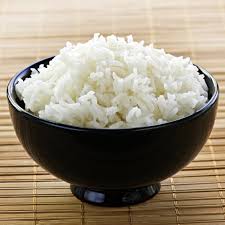A Stinky Suit

Okay, before we start this one, a warning: the fact and story are from hundreds of years ago, and the sources at the time were mostly oral, so there’s a good chance this is more legend than truth.
In the early 1700s, a man named Ōoka Tadasuke served as a samurai in Edo (now Tokyo). As Tofugu points out, samurai at the time were not primarily warriors but, rather, bureaucrats. Ōoka, though, was still interesting. He was very well-regarded — he had a well-earned reputation for fairness — and eventually became the city’s magistrate, a role which was a combination of chief of police, judge, and jury. As the senior arbiter of disputes in his region at the time, Ōoka was the one whose opinion mattered. Because the legal system of the time didn’t have a wealth of precedent from which to draw upon, Ōoka and others were left to rely on their wisdom. Thankfully, Ōoka had plenty of that, assuming the legends are true.
As the story goes, a student — poor, as those who study instead of earn wages typically are — lived humbly in an apartment over a shop, inn, or some other similar business (that detail depends on the retelling). But in any event, the downstairs business ran a kitchen, and cooked tasty-smelling fish at roughly the same time each day. The student, who subsisted on a diet mainly of plain rice, realized that the smells from his downstairs neighbor’s cooking could enhance the otherwise boring culinary experience provided by plain white rice. So the student timed his meals to coincide with the store’s cooking schedule.
Pretty smart, right? Well, the shopkeeper didn’t think so. He thought that the student’s actions were tantamount to stealing. So, he sued.
Despite the ridiculousness of the claim, Ōoka didn’t dismiss the shopkeeper’s case out of hand, instead erring on the side that even absurd legal theories should get a fair hearing. So the case of the stolen smell continued. And having heard the evidence, Ōoka decided that the claim wasn’t as crazy as it sounds. As one law blog retells the story, the samurai/magistrate delivered a stern and surprising verdict: “The student is obviously guilty. Taking another person’s property is theft, and I cannot see that a smell is different from any other property.”
The now-victorious shopkeeper, though, wasn’t going to be happy for long. The student was ordered to take some coins and move them from one hand to another; in doing so, the coins clanged together. And then, Ōoka declare, the student’s debt was paid in full. The sound of money changing hands, Ōoka found, was appropriate payment for the smell of food.
Bonus Fact: Good smells were apparently important to samurai — even after a battle lost in a morbid fashion. According to the Deseret News, “samurai would burn incense in their helmets so their heads would smell sweet if decapitated.”
From the Archives: Japan’s First English Teacher: Involves another unusual job of samurai (although that’s not really the important part of the story).
Take the Quiz: The sweetest smelling countries: Can you name the countries that export the most cut flowers?
Related: “Ooka the Wise: Tales From Old Japan,” an out of print boo
